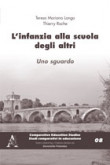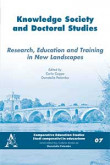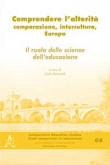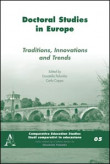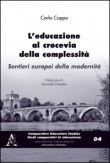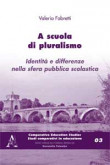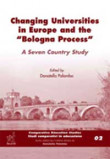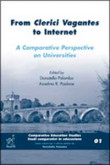
Comparative Education Studies | Studi comparativi in educazione
| Direttore | Donatella Palomba |
| Comitato scientifico | Luciano Benadusi, Antonio Bolívar, Robert Cowen, Hans-Georg Kotthoff, Miguel Angel Pereyra, Ignazio Volpicelli |
| Comitato di redazione | Carlo Cappa, Angela Spinelli, Elena Zizioli |
The Series “Comparative Education Studies” / “Studi Comparativi in Educazione” aims at offering a space where education–related issues – educational thinking, systems, methodologies, history – can be approached from a comparative point of view, with interventions from scholars from all over the world, addressing an international readership. The underlying idea is to rely upon comparison as an approach that is able to provide a specific contribution to knowledge in the different fields of competence of the educational sciences, not restricting the analysis to the traditional study of educational systems in different countries, but including a comparative study of all the topics that are the object of educational reflection: from institutional policies to teaching methods, from philosophical–educational thinking to historical–comparative research, as well as the methodological and epistemological issues. Today, the field of comparative education, at international level, is characterised by lively debates, addressing its contents, methodologies, purposes, and many other relevant features. The Series does not intend to privilege one approach to the detriment of the others but rather wishes to give space to the debate by including studies that bring forward different approaches. Indeed, far from being the mark of an impending crisis, the plurality of ideas witnesses the vitality of this research sector, all the more in a moment when it is often referred to for promoting a better comprehension and a more pro–active function of education in the contemporary world. One of the core principles of comparative research in education is that education can only be understood if we understand the factors which play a role within society outside the educational systems. But the opposite is also true. In fact, if it is true that educational systems, contents, methods and theories respond to an idea of the future, and have therefore to confront the question of what should be “brought” in that future – then education may really be a special place to understand how society is shaping, provided that we undertake an in–depth and rigorous research into its multifaceted aspects. Today, very often reference is made to the so–called “challenges” of education. However, these challenges can only be taken up through an approach aiming at overcoming too narrow boundaries. That is why we decided to publish in Italy a collection which includes volumes in English, without leaving aside, though, Italian papers; and in the same spirit the Series aims at building a “bridge” between scholars of various backgrounds, creating a dynamic and lively place for meeting and exchanging ideas. In a world marked by a thousand mobilities, the notion itself of boundary is in question, and has to be reconsidered. And yet, it seems to us that what is needed is not to deny the boundaries. Rather, we need to unceasingly overcome them for they unceasingly arise, though perhaps being more elusive, and we need to be able to build up ever new bridges.

SINTESI
PUBBLICAZIONI










